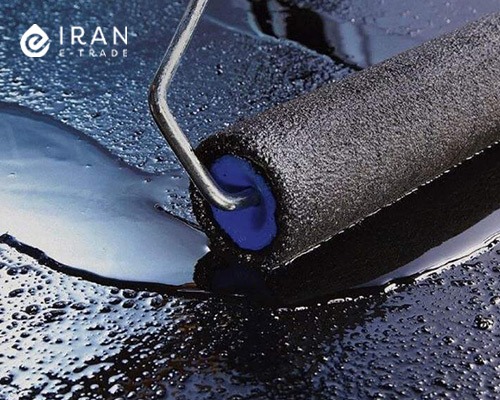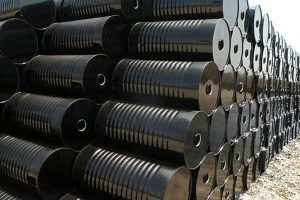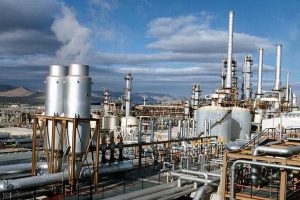Difference Between Asphalt and Bitumen: Which Is Better?
The difference between asphalt and bitumen is evident in their nature, applications, and durability. Bitumen is a sticky, waterproof material used for insulation. On the other hand, asphalt is a mixture of bitumen and durable aggregates, which makes it ideal for paving high-traffic roads. Asphalt is more durable than bitumen and requires fewer maintenance and safety measures. In this blog post by Iran ETrade, a trusted source for bitumen price inquiries, we will examine these differences more closely.
Comparison Table: Differences Between Asphalt and Bitumen
The difference between asphalt and bitumen is in their structure. Bitumen is a sticky, waterproof material used to bind construction materials, while asphalt is a mixture of bitumen and aggregates that forms a stronger, more durable surface.
Many people use the terms “bitumen” and “asphalt” interchangeably and do not know the difference between them. But in fact, these two substances are different. To help you better understand, we have listed the key differences between bitumen and asphalt in the table below so you can recognize and choose them more easily.
| Features | Asphalt | Bitumen |
| Durability and Lifespan | High durability, usually for over 20 years, with a layer thickness of 25–40 mm | Lower durability, between 5 to 10 years, with a thinner layer of 10–20 mm |
| Surface Quality | Smoother and more skid-resistant surface that is much safer for drivers and reduces road noise | Rougher surface with loose aggregates, leading to more noise in the road and increased tire wear |
| Fuel Consumption and Carbon Emissions | Reduced friction with vehicle tires leads to more efficient fuel consumption and lower carbon dioxide emissions. | Higher friction, increased fuel consumption, and lower energy efficiency. |
| Water Resistance | Impermeable, reduces the risk of groundwater contamination. | Prone to being washed away, which can harm soil and groundwater. |
| Temperature Sensitivity | Better stability against temperature changes, only changing in extremely hot or cold conditions. | Heat-sensitive, softens and deforms at high temperatures. |
| Installation Cost | Higher initial cost due to the production and installation process | Cheaper for initial installation. |
| Maintenance Cost and Requirements | Requires less maintenance, periodic inspections are sufficient. | Requires frequent maintenance, especially on high-traffic roads, which leads to higher long-term costs. |
What is Bitumen?
Bitumen is a sticky, waterproof material used for insulation and binding materials in road construction.
Before explaining the difference between asphalt and bitumen, let’s define bitumen first. Bitumen is a sticky, waterproof material resistant to chemical changes, primarily derived from the refining of crude oil.
This material has high adhesive properties and is a key component in asphalt production, building insulation, pipe coating, and other industries. Bitumen has different types, such as natural, petroleum, and modified bitumen, each with specific applications.
How is Bitumen Made?
The manufacturers produce bitumen by refining crude oil. In this process, they expose crude oil to high temperatures and apply pressure in a distillation tower.
At this stage, lighter compounds such as gasoline and diesel get separated from it. The heavy residue of this process, which consists of complex hydrocarbons, forms the bitumen.
Depending on the refining method and the type of additives, bitumen can have various levels of hardness and adhesiveness, which are adjusted based on its different applications.
Advantages and Disadvantages of Bitumen
Bitumen is one of the most important materials in road construction and insulation due to its adhesive properties and water resistance, and it has a wide range of applications.
In this section, to better understand the difference between asphalt and bitumen, we will discuss the advantages and disadvantages of bitumen.
Advantages of Bitumen
- High adhesiveness
- Water-resistant
- Suitable flexibility
- More available and low costs
Disadvantages of Bitumen
- Temperature sensitivity
- Environmental impact
- Requires continuous maintenance
- Lower mechanical resistance
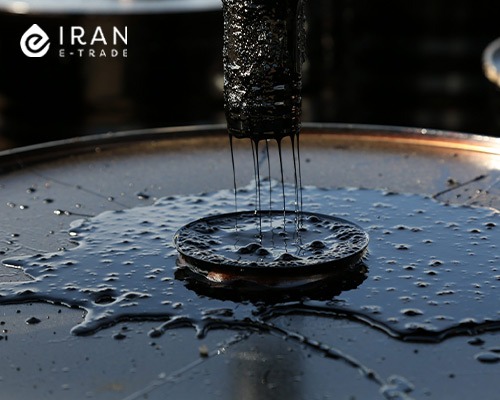
What is Asphalt?
Asphalt is a mixture of bitumen and aggregates that creates a strong, smooth, and durable surface for roads.
By defining asphalt, we can better understand the difference between asphalt and bitumen. Asphalt is one of the most commonly used materials in road construction, made from a combination of bitumen, aggregates, gravel, and sand.
This material is widely used in the construction of roads, highways, airport runways, and other durable surfaces due to its high resistance to pressure and environmental conditions. Asphalt provides a smooth, durable, and long-lasting surface that enhances safety and reduces tire wear.
How is Asphalt Made?
Manufacturers produce asphalt by combining hot bitumen with warm, dry aggregates. In this process, the aggregates are first heated and dried to remove moisture. Then, they are mixed with bitumen to create a uniform blend.
Next, the hot mixture is transported to the project site, spread over the surface, and compacted with heavy rollers to form a strong and smooth layer. Once cooled, the asphalt hardens and is ready for use.
Advantages and Disadvantages of Asphalt
Some of the key advantages and disadvantages of asphalt are:
Advantages of Asphalt
- High durability and long lifespan
- Smooth and safe surface
- Noise reduction
- Water resistance
- Wide range of applications
Disadvantages of Asphalt
- High initial costs
- Sensitivity to temperature changes
- Requires periodic maintenance
- Environmental impact
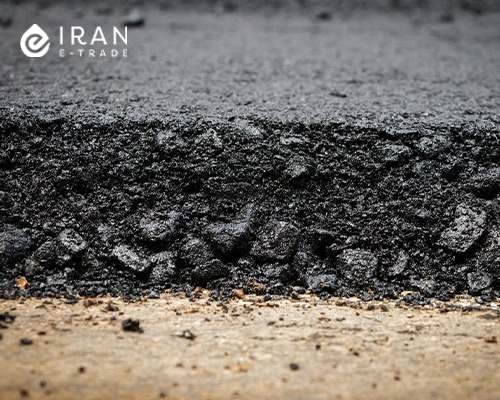
The Difference Between Asphalt and Bitumen
When examining the difference between asphalt and bitumen, one could argue that asphalt, with its easier maintenance but higher implementation cost, is a better option for paving high-traffic roads.
Bitumen is essentially a liquid adhesive that holds aggregates together and is used as a binding material in road construction.
On the other hand, asphalt is an engineered mixture of aggregates, sand, and bitumen, produced in a factory and applied at the project site after being heated by a paver machine.
In the following sections, we will take a closer look at the difference between asphalt and bitumen.
1. Difference Between Bitumen and Asphalt in Terms of Use
Bitumen is used as an adhesive for waterproofing, while asphalt, a mixture of bitumen and aggregates, is used for paving roads and hard surfaces.
2. Difference Between Bitumen and Asphalt in Terms of Durability
Asphalt, with its stable composition, is resistant to traffic and environmental conditions and lasts for over 20 years. However, bitumen-based pavements last only between 5 to 10 years.
3. Difference Between Asphalt and Bitumen in Terms of Maintenance and Repair
Asphalt roads require less maintenance and are only repaired if cracks or wear occur. But bitumen, due to its sensitivity to weather conditions, needs continuous repairs.
4. Difference Between Asphalt and Bitumen in Terms of Application
Another difference between asphalt and bitumen is their method of application.
Asphalt requires advanced machinery and more time. However, bitumen is applicable by using simpler methods, such as direct spraying and covering with aggregates.
5. Difference Between Bitumen and Asphalt in Road Surface and Driving Experience
By studying the difference between asphalt and bitumen, it’s notable that asphalt creates a smooth, stable, and low-noise surface with good friction for tyres.
However, bitumen roads are rougher, generate more noise, and cause faster tyre wear.
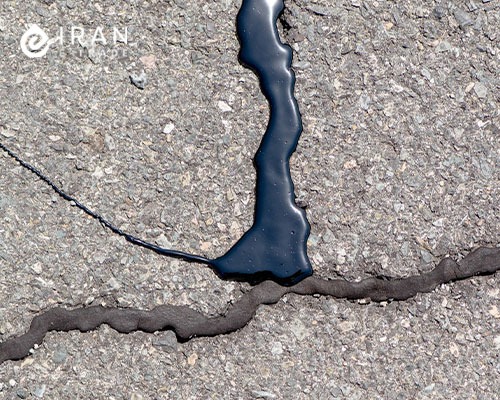
6. Difference Between Asphalt and Bitumen in Terms of Costs
The initial cost of asphalt installation is higher. But in the long term, it is more economical than using bitumen due to its greater durability and lower maintenance needs.
7. Price Difference Between Bitumen and Asphalt
Bitumen, as one of the main components of asphalt, is cheaper compared to asphalt. However, asphalt is an engineered mixture with aggregates and higher performance, so it’s more expensive compared to pure bitumen.
Choosing Between Bitumen and Asphalt: Which Is Better?
The choice between bitumen and asphalt depends on your intended application. Asphalt is a better option for high-traffic roads due to its durability, smooth surface, greater safety, and lower maintenance needs.
Bitumen, on the other hand, is a more economical and temporary solution for low-traffic routes or waterproofing. By understanding the differences between asphalt and bitumen, you can make a more informed decision.
Why Is Asphalt Better Than Bitumen?
Asphalt, with its stable combination of bitumen and aggregates, offers higher mechanical strength and better resistance to weather conditions. In contrast, bitumen wears out faster and is more vulnerable to temperature and pressure.
Which Is More Common: Asphalt or Bitumen?
Due to the difference between asphalt and bitumen, asphalt has become much more common in modern road construction. It offers longer durability and is more suitable for high-traffic and urban roads.
Are Roads Made of Asphalt or Bitumen?
Main roads, highways, and high-traffic routes are usually made of asphalt because it provides greater strength and safety.
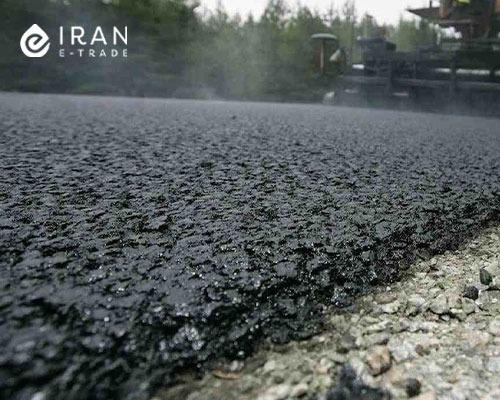
Frequently Asked Questions Regarding The Difference Between Asphalt and Bitumen
In this section, we address some of the most common questions about the difference between bitumen and asphalt:
What Is the Main Difference Between Asphalt and Bitumen?
One of the main differences between asphalt and bitumen is their durability and longevity.
Is Bitumen the Same as Asphalt?
No, bitumen is just one component of the asphalt mixture.
What Is the Difference Between Bitumen and Asphalt In Terms of Application?
One important difference between bitumen and asphalt is that bitumen is mainly used for waterproofing, insulation, and temporarily covering road surfaces, while asphalt is used for constructing roads, airport runways, and high-traffic pathways.
Bitumen or Asphalt: Which One Lasts Longer?
The difference between asphalt and bitumen is significant! Asphalt, thanks to its engineered structure and strong aggregate mix, is more durable and can last over 20 years.
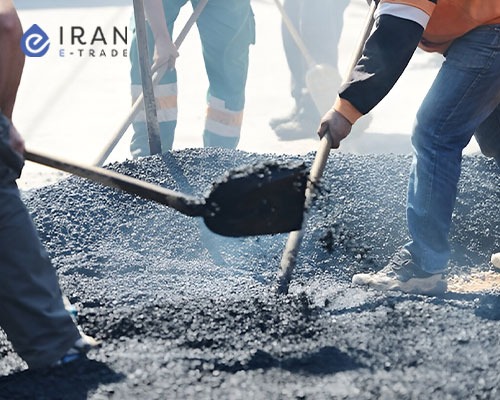
source: claremontasphalt, asphalt
- Bitumen Suitable for Hot Climates: Benefits + Key Technical Tips
- How to Use Nano Bitumen: Properties & Applications + Method...
- Petroleum Products and Petroleum Derivatives: Introduction + Uses
- Oil Refineries in Iran: Complete List + Comparison
- Gasoline Producing Refineries in Iran: 12 Major Refineries
- Largest Oil Producers in the World: The Top 13 Countries...

